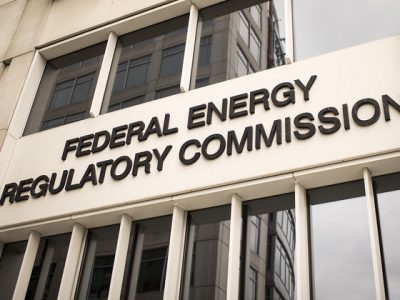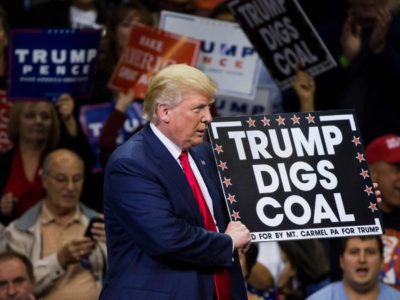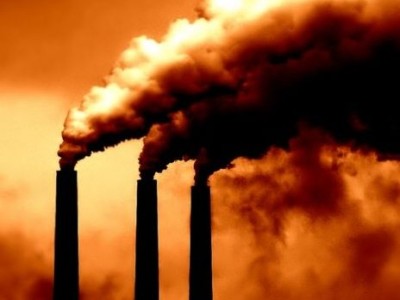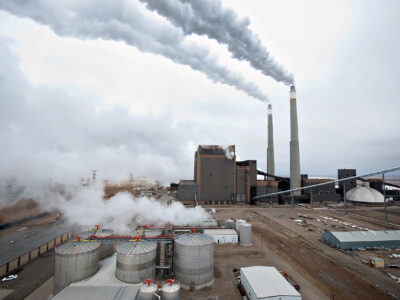Energy
Global Energy Trends
Trump or no Trump, the global economy is shifting toward clean energy.
Globally, fossil fuels aren’t disappearing but they’re not gaining a lot of ground, while renewables have been booming. Trump can’t do much to change this: right now China is a big player than we are.
CONTINUE READINGWhy Did Congress Defund Public Media?
The Drain is a weekly roundup of environmental and climate news from Legal Planet.
We just witnessed the untimely death of a 57-year-old American institution that has made life better for just about everyone. President Lyndon Johnson announced the creation of the Corporation for Public Broadcasting in 1967 to “assist stations and producers who aim for the best in broadcasting good music, in broadcasting exciting plays, and in broadcasting …
Continue reading “Why Did Congress Defund Public Media?”
CONTINUE READINGPerhaps the Least Qualified FERC Nominee in History
Trump’s nominee seems to have essentially no relevant experience or expertise.
LaCerte has had one brush with energy regulation. He was a special counsel at the big ouil and gas law firm, Baker Botts for two years, starting in January 2023. While there, he worked on energy litigation and environmental safety and incident response issues. None of that has much to do with FERC,
CONTINUE READINGTrump’s Funniest Executive Orders
Yes, they’re destructive and often cruel. But sometimes, they’re also unintentionally funny.
Imagine some later historian flipping through the pages of the Federal Register and coming upon Executive Order 14264, “Maintaining Acceptable Water Pressure in Showerhead.” Think of it: he went to incredible lengths to attain the ultimate power, and this is what Trump does with it. Or there’s the one where he aims the full might of the U.S. government at the goal of “Ending Procurement and Forced Use of Paper Straws.” Who says Americans can’t dream big anymore?
CONTINUE READINGDoes the Law Require Cost-Benefit Analysis?
According to the D.C. Circuit, the answer is no.
Putting aside the particulars of the case, it seems wrong to apply the same standard (monetized cost-benefit analysis) to every provision in environmental law. These provisions have different language, reflecting differences in congressional priorities. Some provisions, for instance, may be designed push industry to find innovative solutions; others may reflect Congress’s value judgments or a desire to limit EPA’s discretion. We shouldn’t assume that the myriad differences in statutory language are irrelevant and that Congress wanted agencies to adopt the same method of making decisions in every case.
CONTINUE READINGThe Emperor’s New Endangerment Theory (Wrap-Up)
Trump’s EPA says carbon emissions from U.S. power plants are too insignificant to regulate.
U.S. power plants emit 1.5 billion tons of carbon dioxide a year, a little less than the entire country of Russia. The Trump Administration is proposing to end all regulation of carbon emissions by power plants, on the theory that these emissions should be considered insignificant. They have some complicated legal arguments , but the arguments break down the more closely you look at them.
CONTINUE READINGThe Emperor’s New Endangerment Theory (Part III)
How did EPA get to the absurd conclusion that 1.5 billion tons of carbon emissions aren’t significant? Well might you ask.
There is a very good chance that a court would strike down a EPA’s current finding that carbon emissions from the U.S. power sector are too insignificant to regulate. EPA’s effort to explain its ultimate conclusion rests on a hodgepodge of poorly analyzed considerations, which obviously have been reverse engineered to lead to EPA’s preferred conclusion.
CONTINUE READINGWhat Have We Learned About Rebuilding from Fire?
Woolsey Fire survivors reflect on the rebuilding process and what might help rebuild more resiliently after the January fires.
When I first met Nicole Fisher in 2019, her property in the Santa Monica Mountains was nothing but a driveway and a pile of cement. I was interviewing the art teacher for a radio story about her family’s plans to rebuild after the 2018 Woolsey Fire that destroyed her home and hundreds of others in …
Continue reading “What Have We Learned About Rebuilding from Fire?”
CONTINUE READINGThe Emperor’s New Endangerment Theory (Part II)
To justify a decision not to regulate CO2 from power plants, EPA had to twist statutory language beyond all recognition.
According to EPA, carbon emissions from the U.S. power sector are too insignificant to warrant regulation. This is a bizarre conclusion: U.S. power sector’s emissions are around 6.5 billion tons, just below Russia’s total emissions from all sectors. To reach this conclusion, EPA has proposed a novel reading of the Clean Air Act. In EPA’s view, before it could regulate those emissions, it would first have to make a formal finding that they “cause or significantly contribute” to climate change, and (2) that this has to be judged on the basis of the sector’s percentage of total global carbon emissions. The statute doesn’t say either of those things.
CONTINUE READINGThe Emperor’s New Endangerment Theory (Part I)
EPA says the electricity sector’s climate impacts aren’t significant. Really??
EPA has proposed a novel reading of the Clean Air Act (CAA) that would foreclose any regulation of CO2 emissions from power plants. EPA’s core argument is that the statute requires it to determine whether an industry’s emissions “cause or contribute significantly” to climate change and that the industry’s carbon emissions don’t meet that standard. …
Continue reading “The Emperor’s New Endangerment Theory (Part I)”
CONTINUE READING












